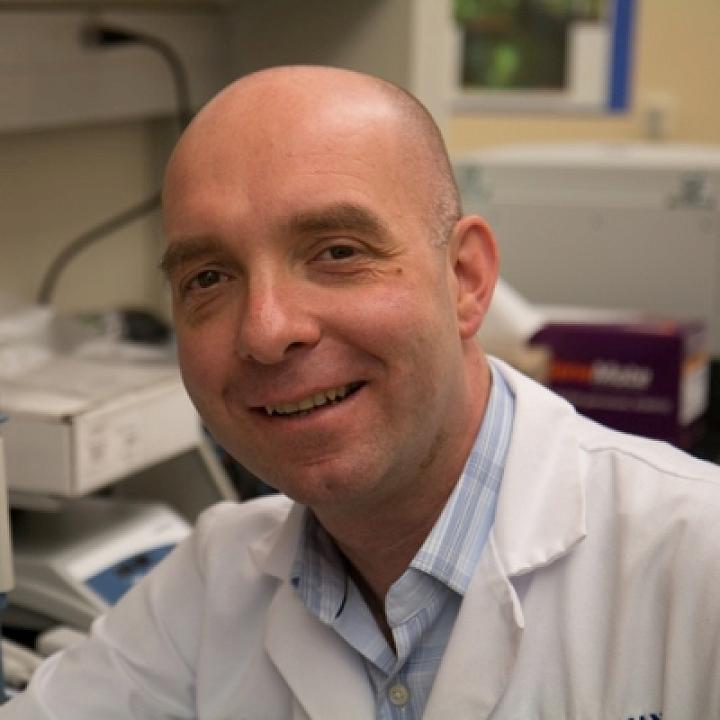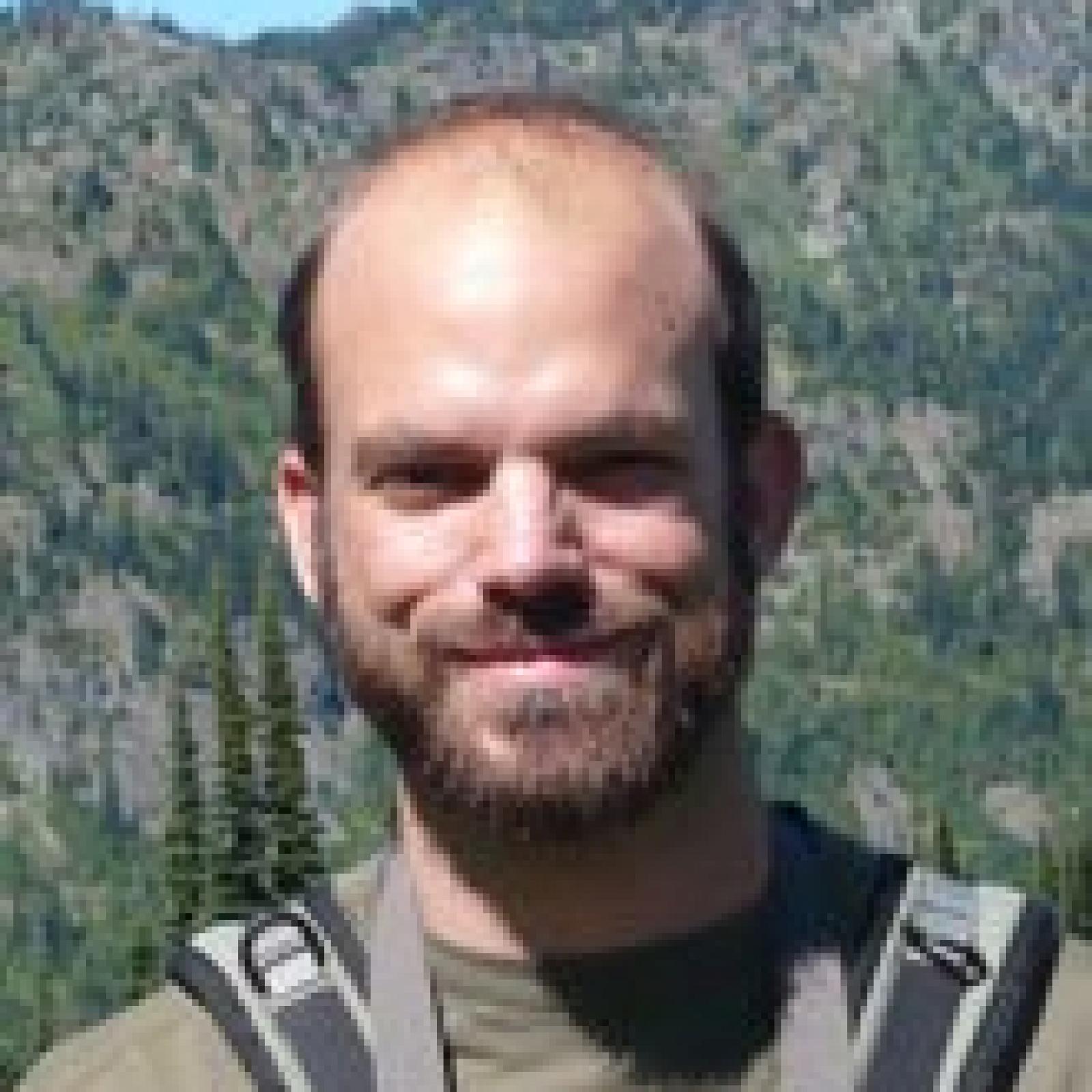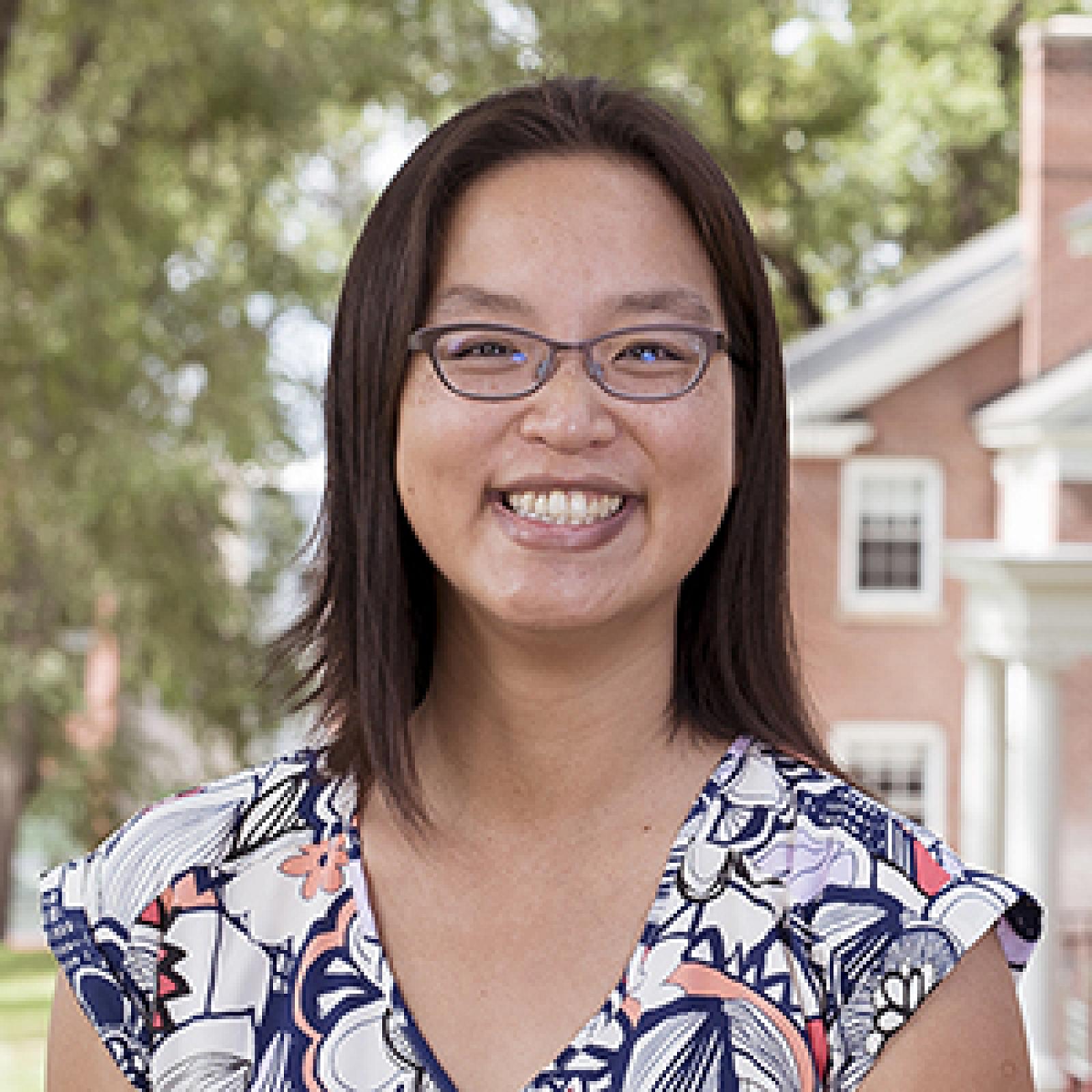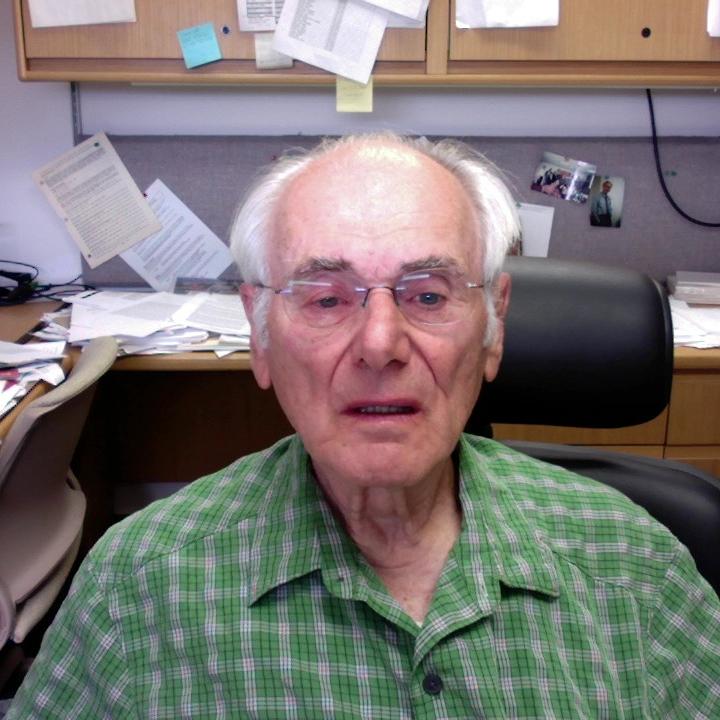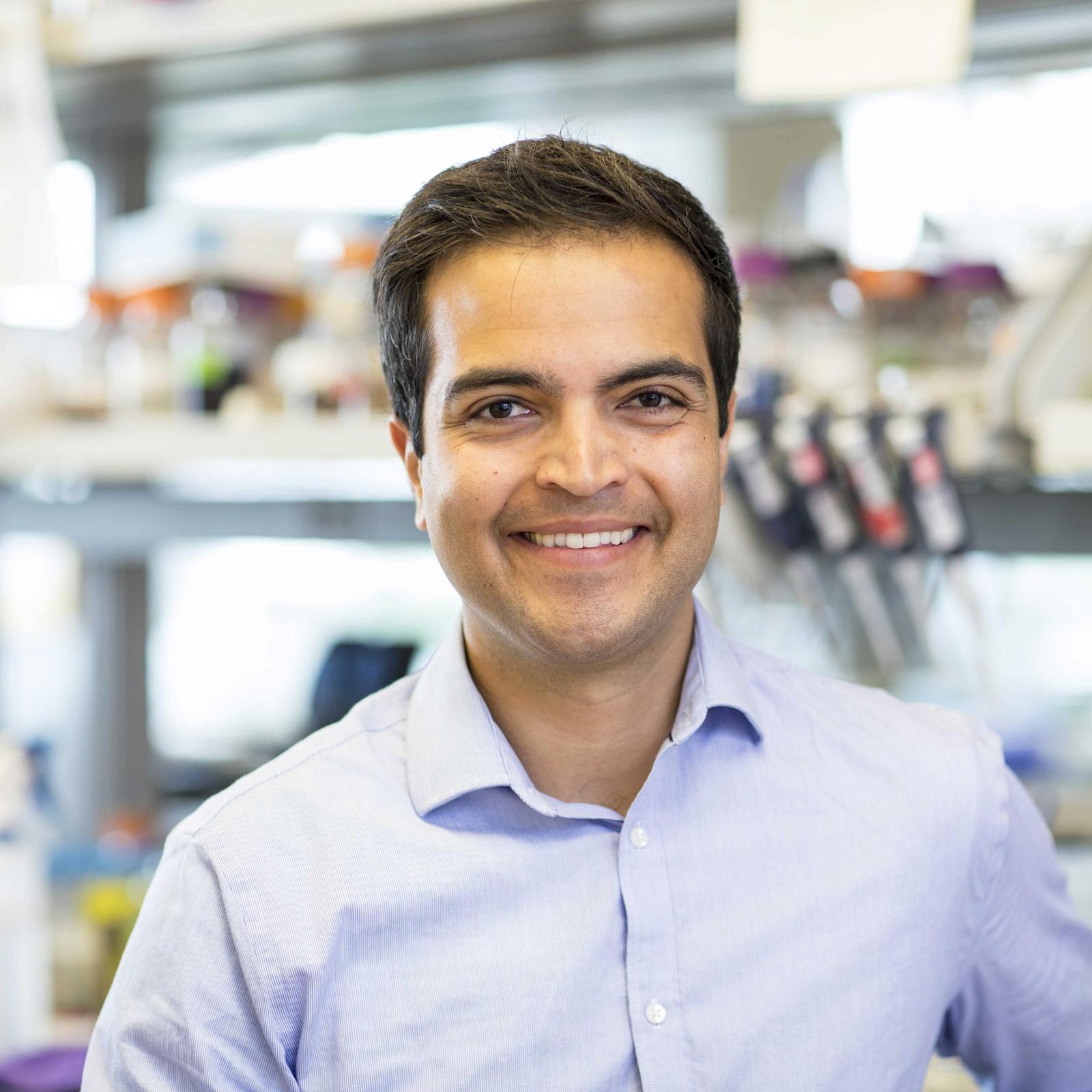
All Initiative Faculty
I started my academic career as a pure math major at Harvard University, moved toward biology as a graduate student in Applied Mathematics at Cornell and as a post-doc at the Center for Population Biology at the University of California Davis, and joined the faculty at the University of Utah in a position split evenly between Mathematics and Biology. My original interests in ecology and epidemiology have broadened to include immunology and many fields of molecular and biomedical biology. I am the author of two textbooks, "Modeling the Dynamics of Life" and the more recent "Urban Ecosystems: Ecological Principles for the Built Environment," and have furthered my commitment to the links between research and education in my role as President of the Society for Mathematical Biology and Director of the Center for Quantitative Biology.
Our goal is to develop novel immunotherapies for different types of solid tumors and hematologic malignancies with a focus on Multiple Myeloma. This includes antibody-based and cellular immunotherapies such as CAR T cells and TCR-transduced T cells. We have also developed a number of techniques for the detailed immunomonitoring of clinical trials with novel immunotherapeutic agents.
3i Bridge/Pillar: Cancer
Keywords: cancer immunotherapy, tumor immunology, CAR T cells, TCR-transduced T cells, monoclonal antibodies
Dr. Markus Babst is a faculty member of the Biology Department and a member of the Center for Cell and Genome Science at the University of Utah. Previously, Dr. Babst worked as a Senior Scientist at MicroGenomics. Dr. Babst received his P.h.D. in Microbiology from the Federal Institute of Technology, Switzerland. He was a postdoctoral fellow in the laboratory of Scott Emr at UCSD. Dr. Babst's research focuses on protein trafficking and the quality control of transmembrane proteins.
Dr. Srividya Bhaskara performed her post-doctoral research work at Vanderbilt University. Her post-doctoral work for the first time showed unconventional functions for mammalian histone deacetylases in genome stability. Her lab at HCI focuses on elucidating mechanisms by which HDACs control genome stability and normal B-cell functions such as VDJ recombination and germinal center reactions. Her lab also performs therapeutic studies for hematological cancers such as leukemia and germinal center derived diffuse large B-cell lymphoma.
3i Bridge/Pillar: Cancer
Keywords: histone deacetylases, DNA repair, immune response, cancer therapeutics and hematopoiesis, B-lymphocyte development
The more outre and grotesque an incident is the more carefully it deserves to be examined, and the very point which appears to complicate a case is, when duly considered and scientifically handled, the one which is most likely to elucidate it."
- Sherlock Holmes, The Hound of the Baskervilles
This Holmesian principle of unusual clues and detective work applies perfectly to unusual organisms and biology. The weirdest lifeforms can trigger Eureka! moments in biology by forcing our brains to consider novel concepts. This is why the Brazelton lab studies extremophilic microbes: weird archaea and bacteria inspire us to consider unusual ideas about ecology and evolution.
One research focus of the lab is the study of serpentinite-hosted ecosystems. These environments host a set of extreme environmental conditions created by a geochemical process known as serpentinization, which releases hydrogen gas, methane, and other simple organic compounds that are attractive food and energy sources for microbes. Serpentinization has been occurring on Earth ever since it became cool enough to have liquid water, and it is also expected to occur on other planets, such as Mars. Therefore, the lessons we learn by studying the weird archaea and bacteria associated with serpentinization are likely to help us understand the origin, distribution, and evolution of life in the solar system.
We take highly interdisciplinary, collaborative approaches to investigate these broad questions, and our lab uses a variety of tools that couple metagenomic techniques with biogeochemistry measurements in the field and traditional cultivation-based techniques in the laboratory. Our field sites currently include the Lost City hydrothermal field in the Atlantic Ocean, the Tablelands Ophiolite in Newfoundland, the Ligurian alkaline springs of Italy, and The Coast Range Ophiolite Microbial Observatory in California. All of these projects are conducted as partnerships with excellent, interdisciplinary teams of collaborators.
3i Bridge/Pillar: Host-Microbe Interactions
My research focuses on the evolutionary ecology of host-parasite interactions. In particular, I am interested in using macroevolutionary information for hosts and their co-evolving parasites to generate testable hypotheses about the evolution of parasite diversity and ecological factors determining host-specificity.
To understand which tissues are most sensitive to ceramide accumulation. Delineating molecular mechanism via which nutrients are sensed by sphingolipids. The regulation of fat metabolism by the immune system.
3i Bridge/Pillar: Diabetes/Metabolism
Keywords: lipotoxicity, insulin, diabetes, inflammation
We study targeted therapy in combination with immunotherapy for cancer treatment, using graphene oxide-formulated anticancer antibodies along with tumor-targeted delivery of immune cytokines. Our goal is to convert tumor necroptosis into tumor vaccine in situ to overcome intratumor tolerogenic microenvironment. We also investigate mechanisms of cancer cell necroptosis brought about by graphene oxide-formulation anticancer antibodies.
3i Bridge/Pillar: Cancer
Keywords: anticancer antibodies, graphene oxide, necroptosis
Colin Dale, Ph.D., University of Liverpool, U.K.
My research focuses on symbiotic relationships involving bacteria and animals, particularly insects. Many insects are known to harbor mutualistic bacterial symbionts that play important roles in host nutrition and defense. My research explores the nature of these symbiotic interactions using an integrative approach that employs genomic, transcriptomic, molecular genetic and molecular evolutionary analyses. We explore a range of topics including: (i) the causes and consequences of genome degeneration in bacterial symbionts, (ii) the molecular basis of interactions between insects and symbiotic bacteria, and (iii) the use of symbionts to express foreign gene in insects of medical and agricultural importance.
My research focuses on ecological factors and physiological constraints that influence foraging behavior and the evolution of diet breadth in mammalian herbivores. My laboratory is currently investigating the evolution of dietary specialization in herbivores by exploring the detoxification abilities of specialist and generalist woodrats (Neotoma species). Woodrats are a model system because the diversity of specialists and generalists is unparalleled by any other genus of mammalian herbivores. Furthermore, because woodrats are closely related to laboratory rats, many of the molecular reagents designed for lab rats work on woodrats.
3i Bridge/Pillar: Host-Microbe Interactions

Michael L Free, PhD
Professor, Metallurgical Engineering; Adjunct Professor, Materials Science and Engineering
My primary research areas include hydrometallurgy, corrosion, and electrometallurgy that are applied in a variety of areas that include rare earth element and critical materials extraction, electrorefining and electrowinning of metals, electrodeposition of materials, electrochemical process modeling, copper extraction and related modeling, corrosion mitigation and modeling, particle processing, interfacial phenomena, and biooxidation.
The Hammond lab has a dual focus on engineering nucleic acids as programmable tools for molecular imaging and gene control, and on understanding the chemistry and biology of nucleotide-based signaling molecules in bacteria and mammalian cells.
We are one of the first labs to develop fluorescent biosensors made of RNA for live cell imaging of enzyme activity. These sensors are designed by combining a riboswitch domain, which is an RNA that changes conformation upon binding a small molecule ligand, and a fluorophore-binding domain. Ligand selectivity is dictated by the riboswitch domain and can even be reprogrammed with single nucleotide changes.
3i Bridge/Pillar: Host-Microbe Interactions
Our laboratory research efforts are motivated by the need for new medical device technologies and designs. We work in the fields of imaging and biosensors. Our projects almost always come from an unmet clinical need and are managed using a “design control” perspective. We work closely with clinicians and other researchers to bring a diverse set of technical and thinking skills to our projects. The lab has been involved with launching several new medical products through startup companies and we know what it takes to move technology from the lab to the clinic.
3i Bridge/Pillar: Immune Deficiency/Dysregulation
Keywords: medical device, imaging, biosensors
Our overall goal is to understand the mechanisms controlling mRNA turnover and the relationships between mRNA stability, localization, and cellular stress pathways. We are currently focused on how cells employ mRNA decay in regulating endoplasmic reticulum (ER) function.
3i Bridge/Pillar: Immune Deficiency/Dysregulation
Keywords: endoplasmic reticulum, stress responses, mRNA
COPD, Health Effects of Air Pollution
3i Bridge/Pillar: Host-Microbe Interactions
Keywords: COPD, PM2.5
My research aims to understand the factors--genetic and environmental--that lead to pathogen outbreaks in plant populations. We approach this broad question by combining molecular, computational and field work to elucidate how pathogens evolve to colonize different hosts, and how hosts evolve to resist specific pathogens. Our current work uses functional genomics and statistical genetics of bacterial pathogens to identify genes important for host-specific colonization, and metabolomics to identify small molecules involved in plant-pathogen interactions.
My research has been to study how microbial agents (i.e., bacteria and mycoplasmas, and bacteria toxins)) can cause inflammatory/autoimmune diseases. We focus on the interplay of innate and adaptive immune system, role of T cell activation and differentiation in mouse models of inflammatory/autoimmune arthritis, sepsis and autoimmune colitis. Over the past two decades, we have been particularly studying how immune molecules including TLRs, MHC, co-stimulatory molecules, cytokines and chemokines are regulated by an unique mycoplasma superantigen MAM, and several other bioactive mycoplasma membrane lipoproteins which we have identified and isolated, and these microbial agents are shown to be disease pathogenic in our mouse models.
3i Bridge/Pillar: Immune Deficiency/Dysregulation
Keywords: autoimmunity, infection, cytokines, autoimmune arthritis, sepsis, and IBD
Aaron received his PhD in Chemical & Systems Biology at Stanford University as an NSF graduate research fellow in Matthew Bogyo’s lab, where he worked on chemical tools to dissect host-pathogen interactions involving enteric bacteria. He then did his postdoctoral research at the University of Washington in Seattle, where he was co-mentored by Mary Lidstrom and Pete Greenberg and worked on genetic tools and chemical signaling in methane-oxidizing bacteria as part of an NIH K99 Pathway to Independence Award. He has been an assistant professor at the University of Utah in the Department of Chemistry and the Henry Eyring Center for Cell and Genome Science since 2019.
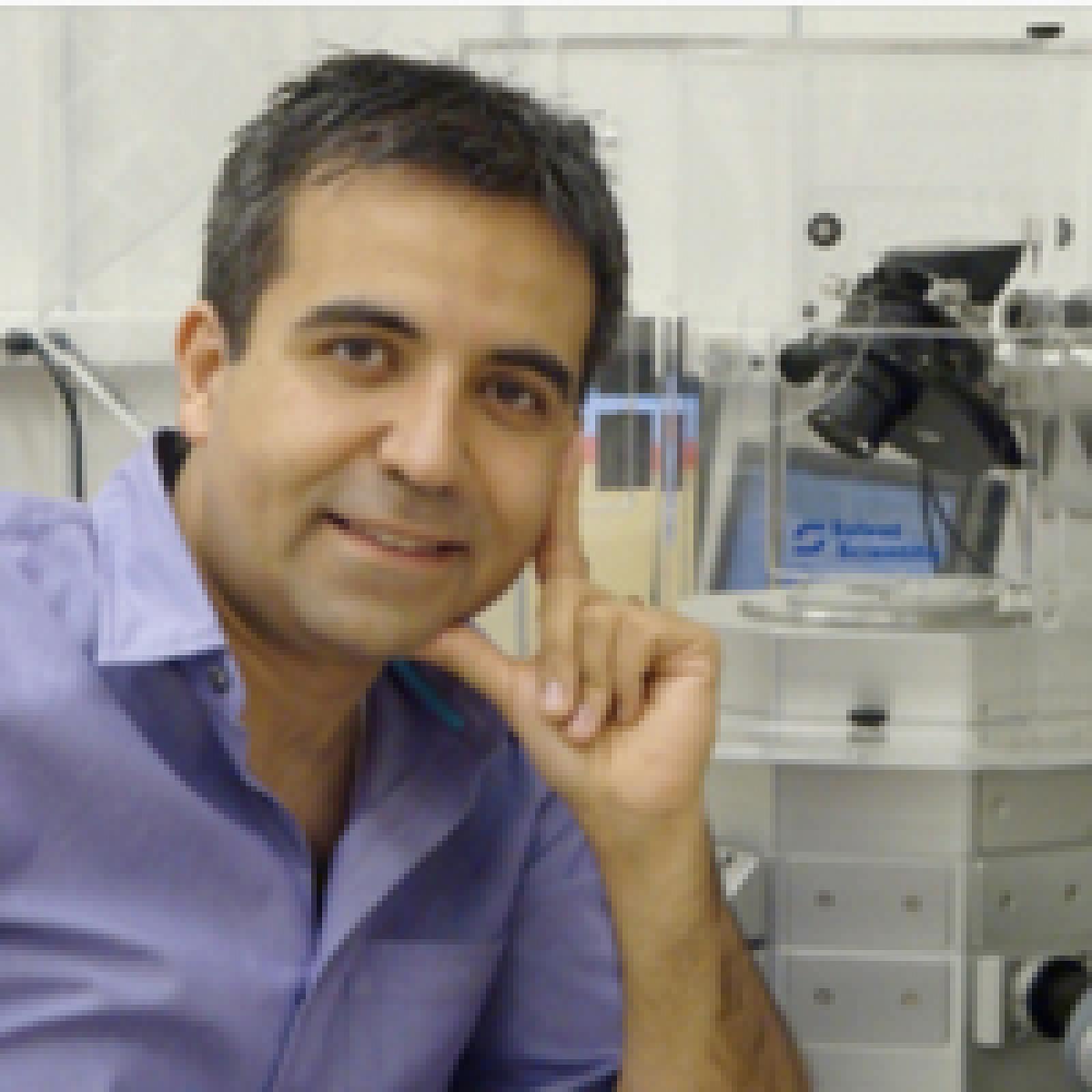
Saveez Saffarian, PhD
Faculty, Center for Cell and Genome Sciences; Associate Professor, Physics And Astronomy; Adjunct Associate Professor, School Of Biological Sciences
We are an experimental Virology and Biophysics lab. Our lab has identified a relationship between HIV budding and protease activation and we are focused on the molecular mechanisms which ensure the release of fully infectious HIV virions. Our lab has also identified a mechanism for redistribution of Vesicular Stomatitis Virus polymerases along with its genome template. VSV is a prototype negative single-stranded RNA virus and shares many of its genetic mechanisms with more potent human pathogens including Ebola and Measles. While our lab is not directly focused on developing antivirals, we hope that our efforts will shed light on underlying mechanisms used by lentiviruses and negative-strand RNA viruses.
3i Bridge/Pillar: Host-Microbe Interactions
Keywords: viruses, imaging, HIV, microscopy
Prashant K Sarswat, Ph.D., is a Research Assistant Professor in the Metallurgical Engineering Department at the University of Utah. His broad interests in 3i domain includes the development of the low-cost sensors for rapid detection of biomarkers specific to diseases such as diabetes, tuberculosis, lung cancer, childhood hypo-glycemia-growth hormone deficiency, toxic inhalation, and various other diseases.
3i Bridge/Pillar: Host-Microbe Interactions
Keywords: biosensors and devices, diabetes, electrochemistry, quantum dots, spectroscopy
Tebo’s research is centered on the diagnosis and management of autoimmune diseases. Her current efforts are focused on approaches to reliably diagnosis and predict specific outcomes in systemic autoimmune rheumatic disease (SARDs) and antiphospholipid syndrome (APS). She is also actively involved in collaborative initiatives to harmonize and standardize serologic tests commonly used for autoimmune disease assessment.
3i Bridge/Pillar: Immune Deficiency/Dysregulation
Keywords: autoimmunity, inflammation, diagnosis, management, biomarkers

